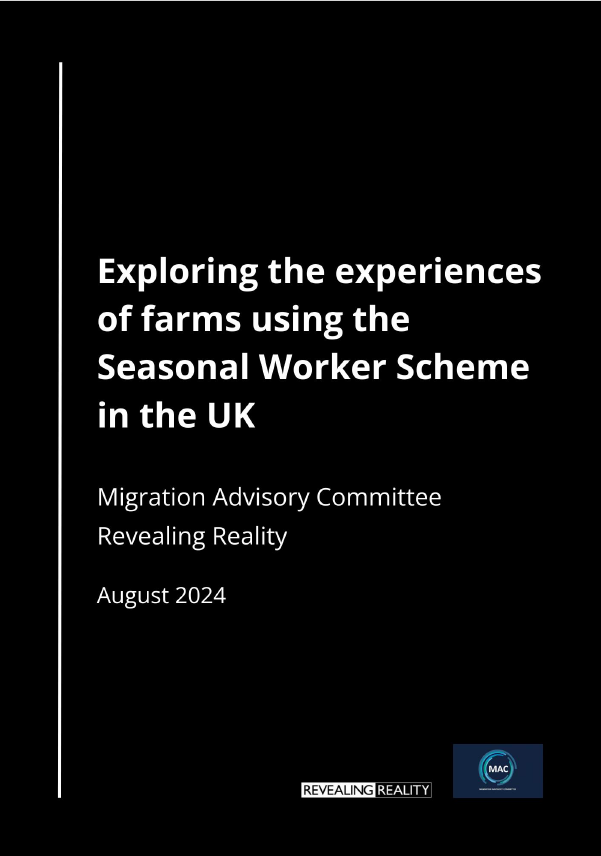The agricultural sector employs almost 500,000 people in the UK, of which 58,000 is seasonal or casual labour. Farms have formerly relied on workers from the EU to fill these seasonal roles and supplement their permanent workforce, since the Seasonal Agricultural Workers Scheme (SAWS). However, following the UK’s departure from the EU and the end of EU freedom of movement, access to migrant labour has been limited, leaving many farms questioning the future of seasonal agricultural labour.
Following concerns from the agricultural sector about the end of EU freedom of movement, and consequent labour shortages, a new Seasonal Worker Pilot began in 2019. This was subsequently turned into the Seasonal Worker visa. The new Seasonal Worker Scheme (SWS) has aimed to address these concerns regarding labour shortages by providing UK farms access to migrant labourers.
As the SWS increases in size each year, the Migration Advisory Committee (MAC) commissioned a review of the visa route to explore how well the route was meeting the needs of employers, employees, and other stakeholders like the Department for Environment, Food & Rural Affairs (Defra).
Revealing Reality was commissioned as part of the MAC’s review into the Seasonal Worker visa to carry out research with farms that do or could use the SWS. The research team interviewed 30 farms, including 18 half-day site visits and 12 one hour-long video calls.
Key findings of the research include:
- Users of the Seasonal Worker Scheme (SWS) viewed it as a critical source of labour. Most farms within the sample had a high demand for seasonal labour and did not feel able to rely on domestic labour to meet those demands.
- The SWS was viewed as mutually beneficial for workers and farms, with farms reporting that workers recruited through the SWS valued working there, and were hard-working and productive.
- Some farms in the sample were going beyond baseline expectations of the SWS to retain workers and incentivise them to return in the future, such as support with living expenses, travel and extra-curricular events and activities.
- Some farms in the sample were not reliant on the SWS, and others actively avoided it. Reasons for this included access to large domestic labour pools, automation of tasks or negative past experiences.
- Some elements of the SWS presented challenges to farms in the sample, such as the rigid time limits of the SWS, confusion about who was responsible for enforcing some of the scheme rules and a reported lack of flexibility in the scheme.

